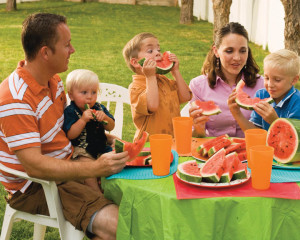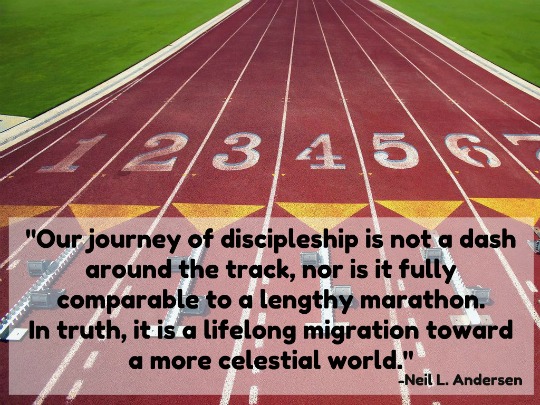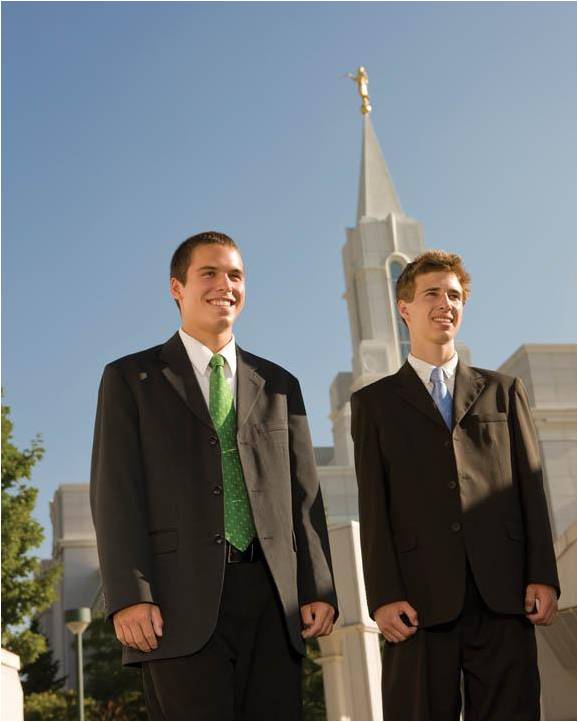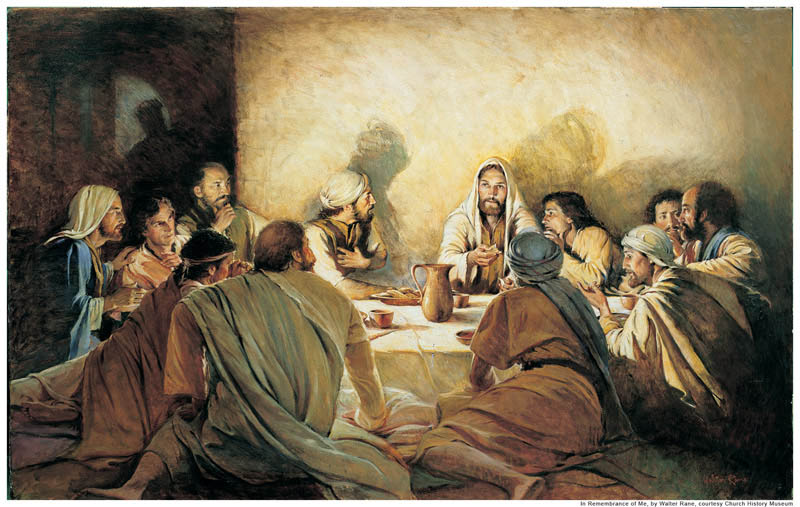“Mormon? What’s a Mormon?” I have been asked that question many times throughout my life. When I was younger, I could never quite think of what to say, so I’d stumble over the answers: “Well, we don’t drink coffee, tea or alcohol. We don’t smoke. We don’t use foul language. We believe in the Book of Mormon…” I’d like to say that as an adult I’m much better, but I am not sure that’s true. The short answer is that a Mormon is a member of The Church of Jesus Christ of Latter-day Saints, sometimes called the Mormon Church because we believe in a book of scripture called the Book of Mormon. The Book of Mormon is another testament of Jesus Christ and a companion to the Bible.
 The long answer, like most long answers, is more complex. Often people would comment that our faith is very restrictive…a sentiment probably aided and abetted by my statements. The truth is just the opposite. Being a Mormon is all about choices, and learning how and why to make the right ones.
The long answer, like most long answers, is more complex. Often people would comment that our faith is very restrictive…a sentiment probably aided and abetted by my statements. The truth is just the opposite. Being a Mormon is all about choices, and learning how and why to make the right ones.
LDS Church President Thomas S. Monson said, “ I am so grateful to a loving Heavenly Father for His gift of agency, or the right to choose. President David O. McKay, ninth President of the Church, said, ‘Next to the bestowal of life itself, the right to direct that life is God’s greatest gift to man’” (President Thomas S. Monson, “The 3 Rs of Choice,” October 2010 General Conference).
One of the first choices a Mormon makes is to be baptized by immersion and confirmed a member of The Church of Jesus Christ of Latter-day Saints. Choice is important in baptism, because at baptism a person makes covenants with God to repent of all sins, follow God’s commandments, and take the name of Jesus Christ upon himself or herself. Children are not baptized until they are at least 8 years old, when they are old enough to make these decision for themselves.
The Book of Mormon talks about baptism and teaches the importance of it:
“Yea, I say unto you come and fear not, and lay aside every sin, which easily doth beset you,…and show unto your God that ye are willing to repent of your sins and enter into a covenant with him to keep his commandments, and witness it unto him this day by going into the waters of baptism” (Alma 7:15).
 After baptism a person is confirmed a member of the Church of Jesus Christ and receives the gift of the Holy Ghost, or the Holy Spirit of God. (See Acts 2: 38.) The Holy Spirit can witness to a person who has not been baptized. But the gift of the Holy Ghost is to have him as a constant companion to help you, guide you and direct you as long as you keep God’s commandments.
After baptism a person is confirmed a member of the Church of Jesus Christ and receives the gift of the Holy Ghost, or the Holy Spirit of God. (See Acts 2: 38.) The Holy Spirit can witness to a person who has not been baptized. But the gift of the Holy Ghost is to have him as a constant companion to help you, guide you and direct you as long as you keep God’s commandments.
We renew our baptismal covenants each Sunday when we take the Sacrament.
“For Latter-day Saints, sacrament refers to the ordinance of partaking of bread and water in remembrance of Christ’s atoning sacrifice. The broken bread represents his broken flesh; the water represents the blood that he shed to atone for our sins (1 Cor. 11:23–25; D&C 27:2). When worthy Church members take the sacrament, they promise to take upon them the name of Christ, to always remember him, and to keep his commandments. Through this ordinance, Church members renew their baptismal covenants” (in The Guide to the Scriptures on lds.org).
Another choice a Mormon makes is to go to the temple. The Mormon temple is
“…literally the house of the Lord. The Lord has always commanded his people to build temples, holy buildings in which worthy Saints perform sacred ceremonies and ordinances of the gospel for themselves and for the dead. The Lord visits his temples, and they are the most holy of all places of worship” (in The Guide to the Scriptures on lds.org).
The sacred ceremonies and ordinances of the temple include making personal covenants with God. And couples who are married in the temple make covenants with God and with each other. “Sacred ordinances and covenants available in holy temples make it possible for individuals to return to the presence of God and for families to be united eternally” (The Family: A Proclamation to the World).
Mormons believe the family is central to God’s plan of happiness for us (The Family: A Proclamation to the World). So it is important to teach our children these principles. Teaching how and why to make correct choices begins at home and is reinforced at church.
The Family: A Proclamation to the World says,
“HUSBAND AND WIFE have a solemn responsibility to love and care for each other and for their children. ‘Children are an heritage of the Lord’ (Psalm 127:3). Parents have a sacred duty to rear their children in love and righteousness, to provide for their physical and spiritual needs, and to teach them to love and serve one another, observe the commandments of God, and be law-abiding citizens wherever they live. Husbands and wives—mothers and fathers—will be held accountable before God for the discharge of these obligations.”
Mormons also believe in helping and serving others. The Savior set the example for us to follow, and He spent His life serving others. The Book of Mormon teaches: “When ye are in the service of your fellow beings, ye are only in the service of your God” (Mosiah 2:17). This includes helping the sick, feeding the hungry, comforting those who are sad, bringing aid in times of disaster.
So again, what is a Mormon? A Mormon is a covenant-making, temple-attending, family-loving and service-oriented follower of our Savior, Jesus Christ.
This article was written by Lisa Montague, a member of The Church of Jesus Christ of Latter-day Saints.
About Lisa M.
I am a wife and mother of 4 beautiful children in a small town in the mountains of Idaho. We ski as a family in the winter and camp, fish, and go to the beach in the summer. I’m a lifelong member of The Church of Jesus Christ of Latter-day Saints, and I am grateful for the Savior and the blessings of the gospel in my life.



